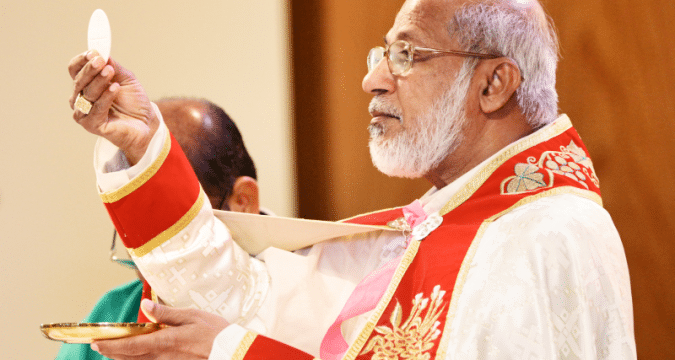
INDIA (UCAN): Church officials in Kerala, India, the area worst-hit by the Covid-19 coronavirus, offered their vast network of healthcare institutions and staff to the state’s communist-led government in an attempt to help fight the global pandemic.
George Cardinal Alencherry, head of the Eastern-rite Syro-Malabar Church, offered chief minister, Pinarayi Vijayan, the use of some 249 hospitals, including three medical colleges, in the fight against the virus.
“(The) Catholic Church has offered to hand over its hospitals to fight against Covid-19,” Vijayan tweeted on March 24, saying that Cardinal Alencherry made the offer in a telephone call.
Expressing appreciation of the offer, Vijayan said, “I am grateful to the Catholic Church for coming forward to back the government at this critical time.”
He said the offer would strengthen the southern state’s administrative mechanism and be “a morale booster” to the government.
In a statement, Cardinal Alencherry said he made the offer because “we have to be at the service of society to tide over this crisis.”
Kerala has reported 110 Covid-19 cases, the highest number in the country, followed by the western state of Maharashtra with 107 cases.
“Currently, 72,460 persons are under observation in the state. Of them, 466 are isolated in hospitals. The rest are self-quarantined at their homes. On March 24 alone, 164 persons were admitted to hospitals,” Vijayan said.
Father Antony Thalachelloor, spokesperson of the Synod of Syro-Malabar Church, said the suggestion was also mad to set up special medical teams to create awareness.
The health department has also approached the Church seeking its student hotels and other facilities to convert them into quarantine homes, Father Thalachelloor said.
“We have agreed to provide all such facilities if the government requires,” he added.
The cardinal and other bishops “were very much concerned about the rise in a number of positive cases and wanted to help the government,” Father Thalachelloor said on March 25.
In an attempt to curb the spread of the outbreak in India, prime minister, Narendra Modi, announced a three-week nationwide lockdown on March 24.
As of April 2 Covid-19 cases in India numbered 1,834 with 41 deaths. On March 24 alone, 64 new cases were reported. More than 1.8 million people in India are being monitored because they have displayed symptoms of the illness, visited abroad or been exposed to confirmed cases.
The national capital of Delhi has been under lockdown since March 22 with borders closed, taxis and rickshaws cleared from the roads, and shops and restaurants shut. Arvind Kejriwal, Delhi’s chief minister, has set up shelter homes where people are offered free meals.
Henk Bekedam, the World Health Organisation’s representative to India, hailed the country’s response to the pandemic, terming it as “comprehensive and robust.”
The announcement to impose a complete shutdown will have a devastating impact on the 300 million Indians who live below the poverty line and survive on daily earnings.
Finance minister, Nirmala Sitharaman, promised to announce a comprehensive relief package soon.
Meanwhile in New Dehli, 10 people died from Covid-19 after after taking part in March 13 to 15 religious conference hosted by Tablighi Jamaat in Nizamuddin, in south Delhi, attended by up to 1,700 followers from India and abroad.
Nine Indians and one Filipino who attended died.
The headquarters of the Tablighi Jamaat, known as Bangle Waali Masjid, was sealed and all the remaining members are being screened for Covid-19 symptoms.
Satyendar Jain, Delhi’s health minister, said that 334 people have been admitted to hospitals, while a quarantine centre for 700 people has been set up.








